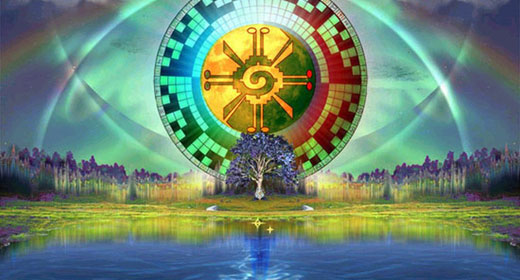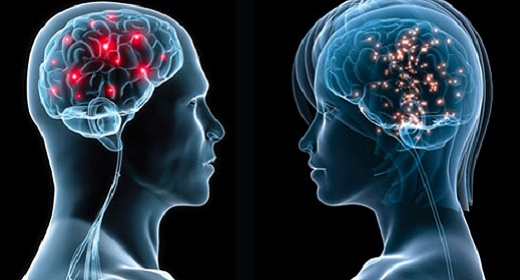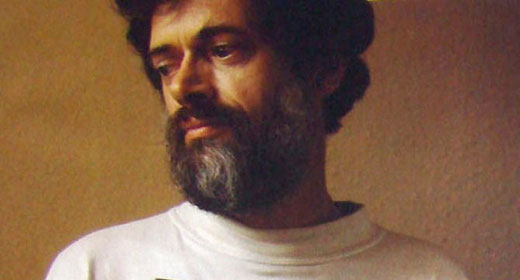Donna Quesada: Oh, this person is awakened or this person is a spiritual teacher…everything is perfect for this person…they’ve got it all figured out. But not necessarily.

Dr. Steve Taylor: That’s true, yeah. I think that is one of the greatest myths about enlightenment or spiritual awakenings. That it makes all problems disappear. That life becomes completely easy. And people cease to have any emotions…to feel sadness or anger. That kind of thing. I think one of the issues is there are lots of degrees of wakefulness. I think that people that are very highly awakened—a very high intensity of wakefulness—they may cease to be angry…cease to feel sadness. And they may have a completely empty mind, and no longer experience disturbances of mood or thought. But that’s quite rare. They still react to challenges in their life. They still feel stressed by the challenges of life. They feel sadness when negative things happen.
And in some cases, personality traits which they have had all their lives may not disappear. They may even be exacerbated by awakening. I think sometimes…it happens especially a lot with spiritual teachers. We’ve all found out about narcissistic spiritual teachers. Spiritual teachers who exploit people who are not as perfect as they seem. And that’s often because somebody experiences an awakening and maybe there was a little narcissism in their previous personality which has not completely disappeared. A little bit of ego-eccentricity or hedonism and if they become a spiritual teacher, those traits can be exacerbated. The role of a spiritual teacher can exacerbate narcissism. Especially if you have a lot of, sort of…fawning admirers. Whatever you do, they still give you admiration, even if you behave negatively or unethically. So, you start to lose perspective and a little bit of narcissism can be massively inflated to the degree where it becomes quite destructive.
DONNA: What is the best way to deal with negative personality traits or to deal with…even, things like anger. I’ll jump just a little bit. Now a days mindfulness has become such a buzz word. And even therapists are taking to it as a modality to use with their patients, which is good. I see it as a positive movement to incorporate meditative styles and practices like mindfulness into their approach with patients who suffer from anxiety, for example. But is that enough to deal with problems like anger or problems like anxiety? And if its not enough, then what is the best way to deal with these traits and tendencies?
STEVE: I think it can be helpful, you know? The essence of mindfulness is that it teaches you not to identify with your thoughts and your emotions. It teaches you to step back and observe them as if they were a process passing by. And that can be very helpful because if you identify with a thought or an emotion, there is a process of intensification that happens. The emotion becomes stronger. The thoughts…they gain more momentum. They start to multiply. And there is a very close relationship between thought and feeling. The more negative thoughts you think, the more negative feelings you have. And the more negative feelings produce more negative thoughts.
DONNA: It feeds itself.
STEVE: Yeah. It’s a vicious cycle. But if you withdraw your identity from that process, then it’s a bit like a car which has run out of gas. It slowly stumbles to a halt. So, that can happen. The flow of thoughts and emotions slowly eases away when you dis-identify with it. So, that can be helpful. But I think what’s even more helpful, going beyond that, is that if you transcend your separateness and if you experience a sense of connectedness with nature, with human beings, with the whole cosmos, then negativity still exists but it doesn’t disturb you as much. If you have a cup of water and you drop a poison in a cup of water, it’s deadly. It can kill you. But, if you put a drop of poison in a lake, it just dissipates and ceases to be dangerous.
DONNA: And is that because you are the water, or you are relating to something as big as the water and so the upset diminishes, in terms of the perspective you have on it.
STEVE: Yeah. You are no longer trapped in a narrow ego-eccentric view, which can be very disturbing, and events can disturb you tremendously. If you have openness and connectedness, then events don’t disturb you as much. You have a sense of equanimity…a sense of calmness. Just like the surface of the lake. So, any disturbance will quickly pass away without causing much negativity.
DONNA: We haven’t really used the “G” word. Sometimes, when I’m talking about these issues, even myself…and by the G word, I mean God. People get nervous around the idea of God…the utterance of God. And when you use the analogy of water, I think…Wow! We are identifying with something so big, so vast, so infinite, that all of these disturbances that are part of material life seem to shrink in importance. And yet, we haven’t really called it God. Is that something that we need to identify with? Does God fit in to this picture of Awakening? Or do we even need to use that word?
STEVE: Well, personally, I’m a bit reluctant to use the G word. Maybe that’s because I don’t have a religious background. Well, I think one of the issues with the word God is, it means something different to a lot of people…to most religious people. The way you were using the word God there…the inference you were using it in, doesn’t have the same meaning to most religious people. Most people think of God in kind of a anthropomorphic way—as an almighty being who can intervene and control the events of the world. And I think what we are talking about is much less personal…much less anthropomorphic, and something that is not apart from human beings…something that is part of our own being. And I think there are lots of religious mystics that have used God in that sense. The meaning of God, which religious mystics used was very different than the meaning of God that most other conventional religious people used. So, I think it can be a little problematic to use that word God. But it doesn’t matter too much and if you want to use that word, it’s fine.
DONNA: As we wind down toward the end of our hour, I’m remembering something else you said that struck me. We’ll switch gears a little bit. You know this notion of awakening and those who aren’t awakened…it seems like today we see so many people in positions of power who should not be in positions of power. And if I’m quoting you correctly, you said, “those people who are drawn to power are exactly or precisely the people who should not be in positions of power.” And so, it makes me wonder, why aren’t more awakened people stepping into positions of leadership? And, I guess, it’s a piggy-back question. I would like you to explain that a little bit more. Why are people who shouldn’t be in power drawn to power and why aren’t awakened people drawn to leadership, so that we can kind of steer this ship in a better direction?
STEVE: I think it has a lot to do with the structures of our society. And positions of power are usually reserved for wealthy people or people that have very high status. But mostly, in our society, positions of power are filled with people that have a strong ego-centricity. People who have a strong desire for dominance and control. And as you say, they are completely the wrong people. Most politicians are not particularly altruistic…are not particularly idealistic. Some are, definitely. But the majority are usually self-seeking, ambitious people, who have this strong need for power and dominance. And the problem is that these people, because they have such a strong desire for power…they are not altruistic, compassionate…not responsible. They are usually not sensible. So usually, they are precisely the wrong people. But you know, in my book, The Fall, I did a lot research about indigenous societies and a lot of indigenous peoples have very sensible attitudes to power. In most cases it wasn’t people deciding they wanted to be leaders and putting themselves forward. Leaders would be chosen by the group. And even if a person didn’t want to be a leader, they would have to take the role of a leader.
DONNA: Ah…
STEVE: So, the group would choose who were the wisest, most sensible people…most responsible people. And they would give them the responsibilities of being leaders. And if people had the impulse to be leaders, they were usually put to one side and were known to be dangerous individuals because they had that desire for power.
DONNA: Wow.
STEVE: They were sometimes ostracized or even asked to leave the group. So that’s a lot more sensible and I think we should do that in our society. Spiritual teachers do not want to be politicians usually because they want to be connected to people on the ground. They don’t want to distance themselves from other people in a position of power above the hierarchy. They want to share their wakefulness with other people on the ground, so to speak. And they are not interested in wealth or in power, they are interested in altruism. Why should they be a politician? It would be their worst nightmare!
DONNA: Maybe it’s some of this too…in spiritual teachings, there is always this invitation to turn the pointer inward…to look at achieving your own inner peace first…and to recognize the connection of that to the ripple effect it will have on the rest of world as opposed to just going out for a march. There’s this understanding that it doesn’t matter how many unenlightened people go out for a march, you can’t change the world in that way. It has to start on the inside. And I think that spiritual people have a greater sensitivity to that and to the importance of that. And that’s sometimes misunderstood. How can you change the world by sitting on your cushion and meditating? How on earth is that going to do any good? Can you speak to that at all?
STEVE: Yeah, good point but I think another one of the myths about spiritual awakening is that people become detached from the world…become indifferent to the world. They don’t care about politics, they’re just kind of blissing out and enjoying their own inner peace. But I think that is a myth. Truly awakened, genuinely awakened people become very concerned for the well being of others. And they want to make a contribution to the wellbeing of the whole human race. So, in many cases, they do become socially conscious and they do become socially active…even politically active. And in a more general sense, they want to contribute altruistically to the wellbeing of other people. And that arises naturally from the compassion that awakened people feel. Once you transcend ego separateness, your own desires or needs are no longer so important to you. But, other peoples’ needs become more important to you. You feel this identification with the whole human race…with the sufferings of the whole human race. And because you feel other people’s suffering so intensely…you want to alleviate that suffering.
DONNA: …And animals, too, and the environment too.
STEVE: Yeah. And even your own body. I think in the unawakened state, people have a hostile relationship with their own body. They don’t treat their bodies particularly well. They have a bad diet. They don’t exercise. They drink to excess, and so on. But, in awakening, you feel a sense of responsibility for your own body. You feel a desire to take care of your body…to treat your body well. Partly because you are more integrated with your body. You are no longer a separate ego. Your body becomes part of your being.
DONNA: Well, Steve, we are just about at the end of our hour and I’d like to ask you if there is anything else you would like to share with the Awaken.com listeners? Or anything that is on your mind that you’d like to bring attention to?
STEVE: Yes, maybe one thing I’d like to share before we’re finished. I talked a little bit earlier about how when people go through suffering in their lives, it can be the trigger for spiritual awakening. Like, when people are dying of cancer or suffering, or of bereavement…and I think that applies on a collective level as well. I think the collective difficulties we are encountering now in the whole of our species…the economic problems, the political turmoil, the environmental problems, and so on…they could be acting as a spur for a collective awakening. The collective awakening is occurring. And perhaps it is occurring in response to the crises we are going through. So, on every level, suffering has a potential positive effect. There is always a positive transformation aspect to any suffering that we go through…either as individuals or as a species.
DONNA: Something to keep in mind lest we fall into despair at the state of things!
STEVE: Yeah, which is easy to do!
DONNA: I’ll take that as an optimistic nod. We’re ready for a positive change and move in a better direction.
STEVE: I think so.
DONNA: Good! Well, then I will thank you again for sharing your time with us this morning…or evening for you. You lecture in Leeds, is that right?
STEVE: That’s right. Three days a week I’m a lecturer in psychology, back at University of Leeds.
DONNA: Wonderful. And would you mention your most recent book one more time and we’ll leave that title fresh on our readers’ minds?
STEVE: Yeah. My last book, which was published in 2017, was called The Leap; The Psychology of Spiritual Awakening.
DONNA: Well, Thank you. Thank you, again. I look forward to future works from you and it was a pleasure to get to know you.
STEVE: Yeah, likewise…thanks a lot.
Read and Watch Part I Here: Awaken Interviews Dr. Steve Taylor Part I – Natural Wakefulness and Experiences of Mysticism









































